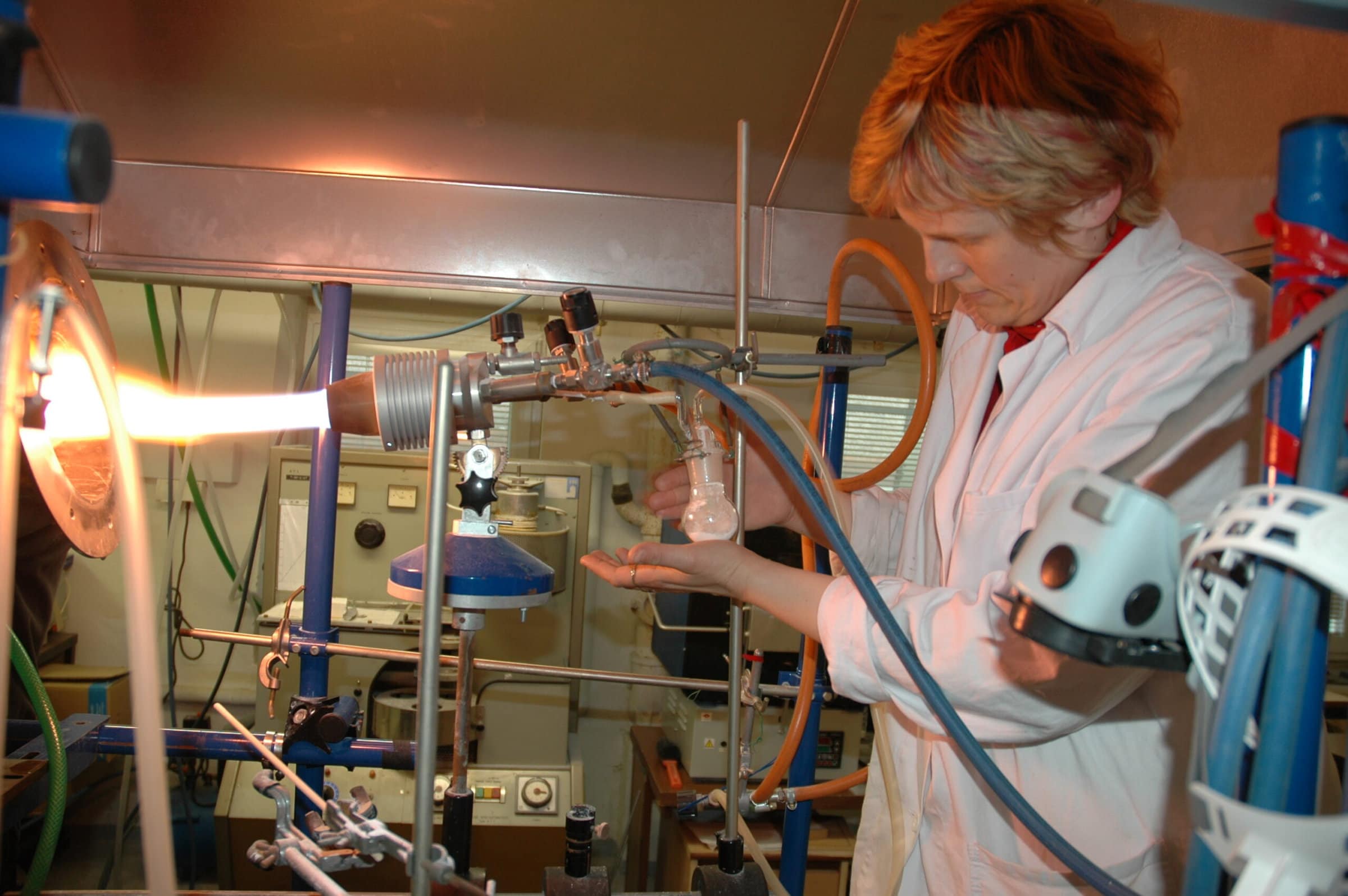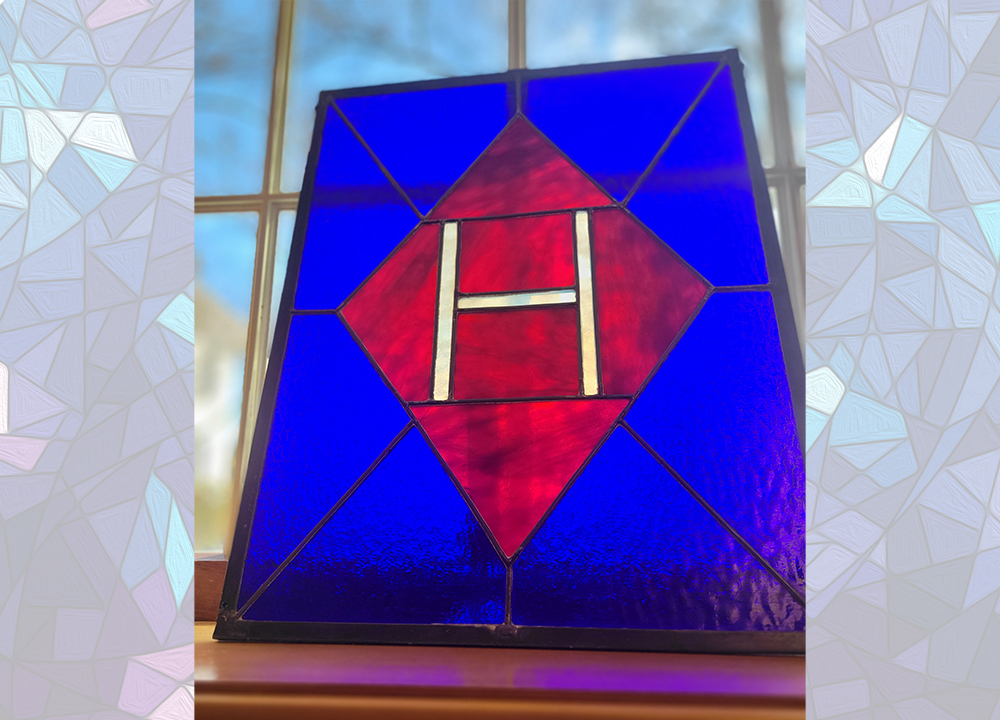
[Image above] A. Prnova, a research fellow from CEKSiM, operates equipment for flame synthesis of glass microspheres. Credit: Dusan Galusek
Five European institutions have come together to establish a new research center in Trenčín, Slovakia, that specializes in cutting-edge functional glass research.
The project, Centre for Functional and Surface-Functionalized Glasses (FunGLASS), is based at the University of Trenčín, with participation from international groups in Germany, Italy, and Spain.
Alexander Dubček from the University of Trenčín (with coordinating professor Dusan Galusek) heads up the project. Project partners include: Friedrich-Alexander University Erlangen-Nürnberg, Germany (with A. R. Boccaccini); Friedrich Schiller University Jena, Germany (with L. Wondraczek); Institute of Ceramics and Glass of Spanish National Research Council, Madrid, Spain (with A. Duran); and University of Padova, Italy (with E. Bernardo).
Their work focuses on materials for personalized health care and energy-related issues, utilization of waste materials for production of glasses, glass–ceramics with high added value, and application of glass-based coatings in the automotive and machinery industries.

From the project kick-off meeting in Trenčín, Slovakia, June 5, 2015. Pictured (from left): Dusan Galusek, head of the CEKSiM and project coordinator; Jozef Habanik, director of the University of Trenčín; A. Duran, CSIC Madrid; E. Bernardo, University of Padova; and P. Hostak, University of Trenčín, who is responsible for the preparation of the financial and business plan. Credit: Dusan Galusek
The goal of the project is to support training and education of young researchers and to establish an international graduate school issuing joint diplomas with project partners from high-performing European countries.
We had a chance to talk to Dusan Galusek, the coordinating professor of the project, about how the Centre came to be, how it relates to the recent NSF-funded International Materials Institute’s New Functionality in Glass, and what the future holds for the project’s development.
How did the Centre get started?
DG: The Centre is intended to expand the facilities (both personal and experimental) of the existing Centre of excellence for ceramics, glass, and silicate materials (CEKSiM), established in Trenčín, Slovakia, in 2007. CEKSiM was founded as the Slovak national Centre of excellence in the field of ceramic, glass, and silicate materials in general, and its establishment was funded by the European Regional Development Fund with the sum of 4M€. Our ambition now is to upgrade the national Centre to an internationally recognized and well-established entity.
How does this relate to the recent NSF-funded International Materials Institute’s New Functionality in Glass?
DG: It is a totally different project. This is a new type of European project included in the Horizon 2020 Program and focused on the design and development of a new Centre of excellence starting from the current Centre of glass in Trenčín. The NSF-IMI will be one of the models taken into account to define the goals and management of the new center.
How are the leaders connected to the International Commission on Glass?
DG: All the participants are closely related with ICG, participating in the different Technical Committees (TC04, TC06, TC07, TC16, TC23). Professor Alicia Duran, one of the [FunGLASS] project directors, is the Treasurer of ICG and has been nominated as vice president of the association by the Steering Committee.
What else should everyone know about this project?
DG: It should be emphasized that the establishment of the Centre and its full funding will be a subject of further evaluation. At the moment, the consortium only obtained a one-year grant for preparation of the business and financial plan for establishment of the new Centre. This is supposed to be completed by June 2016. After that the business plan will be evaluated by the European Commission and funding will be provided or not. In any case, there is a strong commitment of the Slovak government to fund the establishment of the Centre even if the proposal will not be successful and the EU funds will not be provided.
Anyone interested in more information may contact Dusan Galusek at dusan.galusek@tnuni.sk.
Author
Stephanie Liverani
CTT Categories
- Glass
- Market Insights
Related Posts
Solid-state batteries turn heads at CES 2026
January 29, 2026
Ohio Creativity Trail: Heisey Glass Museum
January 13, 2026


